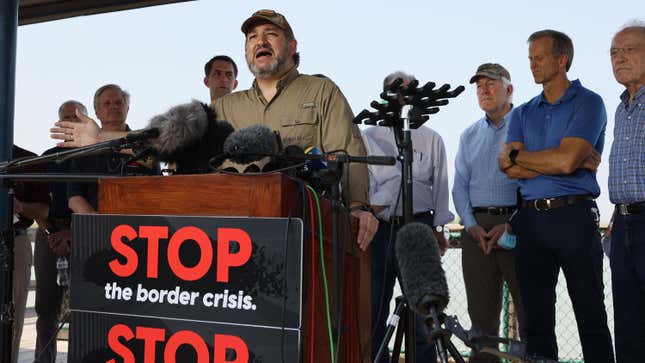
Photo: Joe Raedle
In December, Fernando García, the executive director of the Border Network for Human Rights, gave the incoming Biden administration a warning—that if they ignored the needs of migrants and asylum seekers at the border, it would quickly become a manufactured crisis, one that would, as García put it, not only derail hopes for comprehensive immigration reform, but “derail the administration itself.”
“We warned the administration, we talked to some people close to Biden, and we talked with members of Congress to say, you know, if you don’t do this well, then you’re going to have the appearance of a crisis, which it is not, and then certain people will use it politically, especially Republicans,” García told Jezebel. “And then it happened.”
What García means is that the border has, in recent weeks, once again become the site of disingenuous outrage. People presenting themselves at the border, including thousands of largely teenagers traveling without their family members to seek asylum in the U.S., is being painted once again as a “surge,” or a “wave” and a “growing crisis.” It has dominated cable news, with predictable and depressing effects. According to a recent Politico and Morning Consult poll, support for offering undocumented immigrants a pathway to citizenship has dropped 14 points since January, even among Democrats. “What’s likely happening here is that the GOP’s messaging on the border surge is starting to bleed into other aspects of the conversation on immigration,” Politico noted.
-

-

-

-

-

-

-

-

-

-

-

-

-

-

-

-

-

-

-

-

-

-

-

-

-

-

-

-

-

-

-

-

-

-

-

-

-

-

-

-








































